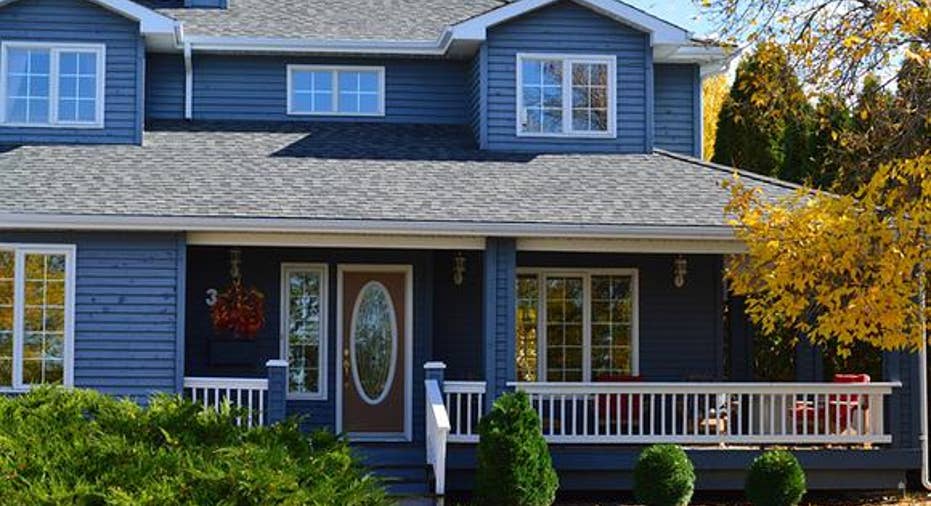3 Reasons Not to Own a Home in Retirement

Many soon-to-be retirees aim to pay off their mortgages before leaving the workforce so they can kick off retirement without the stress of a monthly payment. And it makes sense. At a time in your life where money is about to become limited, eliminating any source of debt is a wise move. But rather than pay off your mortgage and call it a day, you may want to take that idea one step further by selling your home altogether.
While owning a home in retirement does make sense for some people, here are three good reasons not to do it.
1. Too many variable costsWhen you're living on a fixed income, you don't want too many financial surprises. But owning a home comes with a number of variable costs, from rising real estate taxes to unexpected repairs. Even during periods where home values drop, property taxes still have a way of creeping up. In 2000, local governments across the U.S. collected an estimated $247 billion in real estate taxes, but by 2010, that figure reached $476 billion. If you hang on to your home in retirement, you can't discount the possibility of seeing your property taxes climb year after year.
On top of that, the older a home gets, the more likely it is to need major repairs. Having to come up with, say, $10,000 on a whim to replace your heating system is easier said than done when you're no longer working. Renting, by contrast, means paying a fixed amount for as long as your lease is in effect. And while you do face the possibility of seeing your rent go up year after year, those increases will likely be easier to absorb than a major home repair. In 2014, rental prices increased an average of 3.6% on a national level. While that's not a small amount for someone on a tight budget, imagine you're renting a place for $1,500 a month and get hit with that same increase. Yes, you'll pay an extra $54 a month, or $648 throughout the year, which is a lot of money, but that's nowhere near what it would cost to repair a foundation or replace a roof.
For retirees, the biggest advantage of renting is that it smooths out your costs and makes you less vulnerable to financial emergencies.
2. You'll probably pay more for maintenanceMaintaining a home often takes a lot of work, and while you may be willing to put in the time, you may eventually find you don't have the energy. The older you get, the more difficult it becomes to mow the lawn, weatherproof the deck, or patch up the roof. Chances are you'll soon need a contractor or handyman to do that stuff for you, and those kinds of services don't come cheap.
On the other hand, if you sell your home and move to a rental, you won't have to worry about maintenance. And if you think renting will automatically be more expensive than owning, then you should take a closer look. Even if you've paid off your mortgage, your property taxes and maintenance expenses could cost nearly as much as a rental. And if that rental happens to come with a communal swimming pool that someone else is responsible for, even better.
3. You're low on cashIt's an unfortunate fact that most Americans enter retirement financially unprepared. In fact, an estimated 31% of non-retirees say they have no retirement savings whatsoever, and while Social Security can help, not everyone can live off of those monthly benefit checks alone.
If your retirement income can't support the lifestyle you want, and you're not looking to return to work part-time, then selling your home could be a smart solution. As long as you live in a home for two of the five years prior to its sale date, your first $250,000 of profit is exempt from capital gains taxes if you're single. If you're married and file a joint return, your tax-free allowance doubles to $500,000. If market conditions are favorable, selling your home could be a great way to generate cash and avoid having to resort to racking up debt -- which is not something you want to do when you're no longer earning wages.
You might also consider selling your home if your financial situation demands that you claim your Social Security benefits before your full retirement age. Though you can claim Social Security as early as age 62, doing so will reduce your monthly payment for as long as you continue to collect benefits. If your full retirement age is 67 and you start taking benefits at 62 because you need the money, you'll lose 30% of your full benefit amount. Selling your home is a good way to avoid locking yourself into a lower benefit rate for what could be the next several decades of your life.
Of course, if you've paid off your mortgage and you have the savings needed to cover any sudden, major expenses, then there's no need to rush to sell your home. On the other hand, if you'd rather put the stress of homeownership behind you, then by all means, sell. It could end up being one of the smartest financial moves you make.
The article 3 Reasons Not to Own a Home in Retirement originally appeared on Fool.com.
Copyright 1995 - 2016 The Motley Fool, LLC. All rights reserved. The Motley Fool has a disclosure policy.



















